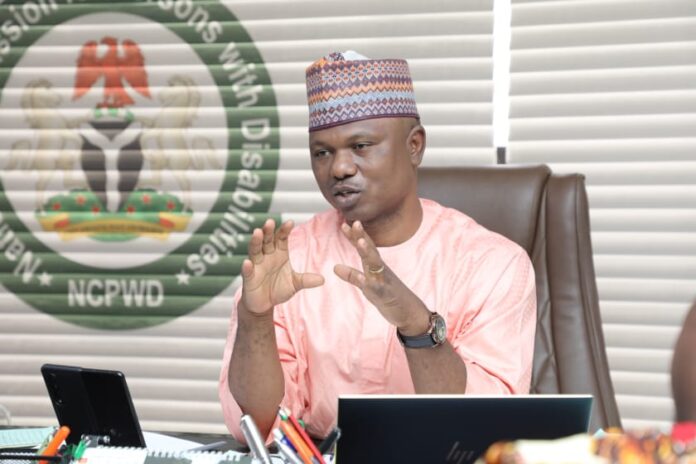Mr James David Lalu is the first Executive Secretary of the National Commission for Persons with Disabilities NCPWD. Since the inception of the Commission which was established by President Muhammadu Buhari in August, 2020, a lot has been happening within the Commission.
In this interview with The Qualitative Magazine, The Executive Secretary of the Commission spoke on the achievements of the commission from the inception and what is expected from the Commission in the nearest future.
TQM: As the first Executive Secretary of NCPWD, what are your challenges so far?
It was not easy setting up a new Establishment, setting up the system, setting up the staffing, initially we have no office accommodation, the majority of the staff were working from outdoors then, no budgetary allocation initially, from 2020 to 2021, the budget was not sufficient, then we later got this office and here we are now.
TQM: What is the scorecard of the Commission from the inception till date?
Thank you very much for the question.
Actually, we have recorded quite some milestones which I will breakdown to different sectors:
On Education: We have secured approval from the Universal Basic Education to establish the Smart schools in the six geopolitical zones. The smart schools will have all the accessibility and inclusive features. It will serve as Inclusive Schools.
We have developed curriculum for disability studies for Universities, Polytechnics, Colleges of Education and National Policy and Strategic Studies. We are engaging the regulatory bodies of the institutions to ensure that they adopt disability studies so that it will help to build the knowledge of professionals from different fields of disability inclusive development. It will be in the general studies so that no matter the course you are reading; you will have an idea of disability inclusion. The essence of it also is to help us have a society whereby everyone understands disability and apply disability inclusivity in all they do. People will know what is expected of them to include persons with disabilities without persons with disabilities coming to advocate for them. It will reduce discrimination against Persons with Disabilities.
On accessibility in the schools, we are modifying and providing accessibility features such as accessible toilets, ramps in Universities such as Ahmadu Bello University Zaria, Usman Danfodio University Sokoto, University of Ilorin, Kwara State. The essence of it is to provide a prototype for accessibility of the buildings in these schools. In appreciation to these intervention, some of the Universities such as Usuman Danfodio University Sokoto, ABU Zaria have proposed a partnership with us to develop a curriculum introducing disability studies in the schools. Some other Universities like Nnamdi Azikiwe University, Awka, University of Calabar were proposing to partner the Commission to grant a scholarship program.
NCPWD also have developed a scholarship program for PWDs but the ASUU has been delaying the program, as soon as ASUU strike is over, we will gather data of PWDs in the higher institutions and the scholarship program will commence.
We understand that some people after gaining admission, will not be able to pay their school fees as well as coping with other financial requirements. We looked at it and decided to develop scholarship programs which we intend to extend to accommodation and other stipends depending on our budgetary allocation.
We are also committed towards promotion and Implementation of Inclusive Education.
On Justice: We are working with the Nigeria Civil Defence to understand the Discrimination against Persons with Disabilities (Prohibition) Act and to collaborate with the Commission in ensuring access to justice by persons with disabilities. In other to enhance reporting of rights violation by Persons with Disabilities.
We have developed an application in Play store that will enable any person with disability report any act of violation. With your android or Apple phones, download app (NCPWD), have it in your phone, whenever there is any act of violation of your right, drop the message through the app and our ICT team will receive it and communicate it to our legal team who will look into it and provide the adequate recommendation, we will provide advocacy where it is needed and seek justice where it is needed. No matter high placed you may be, we will not hesitate to take action against you if you discriminate against any person with disability on the basis of disability.
On Awareness: We have been organizing town hall meetings in the six geopolitical zones, we have covered other regions, it is remaining northwest and we are going to also have town hall meeting in the 36 states. The essence of it is to create awareness of the Act among persons with disabilities so that they will know their rights because it is when they know their rights that they can demand for it. It is also for the public to understand that it is no longer business as usual to discriminate against persons with disabilities.
On Accessibility: Part 3 and 4 of the Discrimination against Persons with Disabilities (Prohibition) Act 2018 is clear on the need for accessibility of public buildings in Nigeria and also accessibility in aviation industry, road transportation, railways and Seaports. In addressing this, we have developed minimum accessibility standards (Nigerian Standard Accessibility Code) which provided some dimensions that the engineers will use while constructing these structures. For example, the ramps, lifts etc have dimensions that will make them usable by persons with disabilities. It is a document of over 320 pages which took into consideration all forms of disability. We have engaged the Honourable Minister of Works, Babatunde Raji Fashola to secure approval of the accessibility code and we are also engaging the Ministry of Transport to adopt the areas that concerns them. We are working to see that at the end of the day, the document would be generally accepted and we will have uniform ramps and other facilities across the country. We are also going to train the staff of all these agencies to understand the codes.
The sign language we are using here is American Sign language and the Deaf in the local communities do not understand the language. So we saw the need to bridge the gap, the Commission in collaboration with the Nigerian National Association of the Deaf (NNAD) developed Nigerian Sign Language Dictionary which was launched on the 9th December, 2021 which is the first phase with over 250 words and the draft of the second phase has reached an advance stage with 6, 350 words. After securing the necessary approvals, the Nigerian Sign Language Dictionary will be launched on 3rd December, 2022 which is International day for Persons with Disabilities.
We have also collaboration with NNAD to develop sign language code, it is a policy formulate to guide the conduct of the sign language interpreters. To ensure that sign language interpreters maintain professionalism in discharging their duties. We watch with dismay fake sign language interpreters on TV. This will guide their code of conduct, behaviours. We have created a unit in the commission to monitor sign language interpreters in Nigeria.
We are committed towards ensuring that sign language is included in the school curriculum and also adopted as an official language in Nigeria so that there will be sign language interpretation on TV and in every gathering.
On Employment: Section 28 and 29 of Discrimination against Persons with Disabilities (Prohibition) Act 2018 provides for 5 percent employment quota in all MDAs, Federal, State and Local Government. We have engaged and got all the consent, approvals, circulars from all the relevant authorities. We have also engaged with the Secretary to the Government of the Federation who issued circular mandating every government establishment to comply to 5% employment quota. The circular is mandating compliance among MDAs.
Again, we have engaged Federal Civil Service Commission who gives waivers on employment. They have taken cognizance of the 5%.
We have an understanding with Federal Character Commission and they are taking the issue of 5% employment opportunity for PWDs as one of their components. They are monitoring every MDAs and when you employ and come to them for certificate of compliance and the 5% for PWDs is now part of the compliance criteria.
Federal Character Commission is working to ensure that there is compliance in accordance with Federal Character Act.
Many MDAs are beginning to comply, some of them have been coming to us at the Commission asking for CVs to enable them make up their 5% requirements as stipulated by the law.
We have been providing this opportunity to PWDs so that many of them would be gainfully employed.
Again, we have been registering PWDs under employability and others, to gather data of PWDs. We have registered over 100,000 persons and the exercise is still ongoing, our target is to hit about 200,000 by the end of this year. We are working together with Joint National Association of Persons with Disabilities (JONAPWD) for verification to ensure that all that we have in our database are persons with disabilities.
We will also use this data to produce the certificate of disability in accordance with Discrimination against Persons with Disabilities (Prohibition) Act 2018.
I am urging PWDs to register themselves in our registration window which is there at our app on Play store and to enable them get their cards.
We have also reached out to the Nigerian Railway Corporation and they have given us 50% discount which we can easily access with our card.
On empowerment, we have provided assistive devices to over 200 PWDs.
We have been able to enroll 50,000 PWDs on Conditional Cash Transfer and we have completed enrollment of 30,000 PWDs in NPower this year. Government Enterprise Empowerment Program (GEEP) is also accommodating 2000 PWDs.
Recently, we brought together different State agencies on disability and we are synergizing to use their offices to bring the Commission closer to PWDs in the States.
We have succeeded in registering many Organization of Persons with Disabilities with Federal Ministry of Agriculture and we are working with the ministry to provide Agric loans to them so that PWDs can also be part of those feeding the nation.
We have created a braille center in our Commission to provide free braille services for MDAs in need of having their documents in braille. If any government agency is organizing program for persons with disabilities, they can print programs of the event in braille free at our center.
We are building an ICT center in School for the Blind Gindiri which is up to 80% completion as at now, as soon as it is completed, we are going to equip it with the modern accessible ICT materials. We want to see our people grow with ICT growing economy around the world.
On data, we are engaging the National Population Commission to ensure that the proposed 2023 National Census reflect disaggregated data of PWDs. We have ensured that they adopted the Washington Group Set of Questions in their questionnaire.
We are going to call a stakeholder meeting for all relevant stakeholders to understand what is disability before the census start and we are going to provide training for data enumerators.
We are working to get the true population of PWDs in Nigeria which will assist in the budgetary allocation for disability programmes as well as other development plans of the government.
TQM: What is the Commission’s Plan towards enforcement of the Minimum Accessibility Standard Code?
Any federal government contractor must get accessibility compliance certificate from the Commission and before issuing the certificate, the Commission will evaluate the company, ascertain the competence and capacity of the workers of the company towards the accessibility standard code. We will provide training for the contractors to understand Accessibility Standard Code.
Secondly, before any approval would be given for any design of government building, it will be forwarded to the Commission for evaluation to ascertain the compliance to Accessibility Standard Code before our recommendation would be submitted for final approval. That’s why we have accessibility department, in the department, we have civil engineers, quantity surveyors who are specialists in the areas of providing preliminary training for the companies.
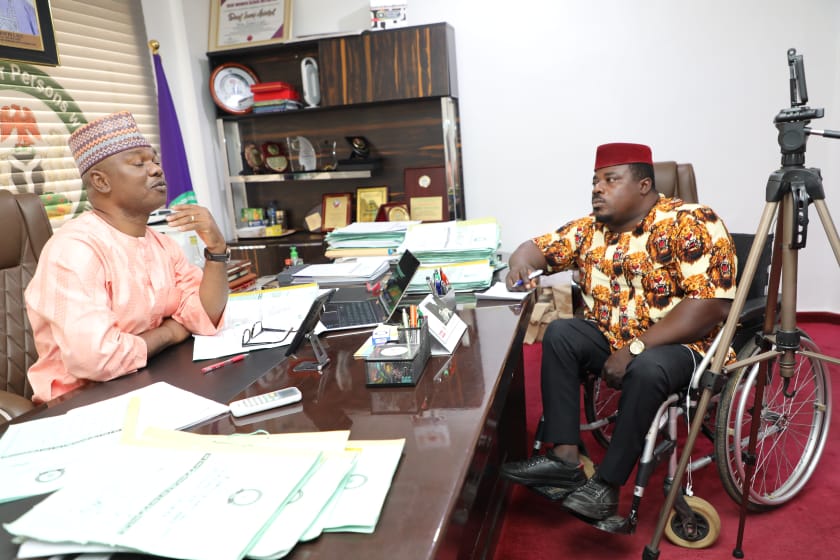
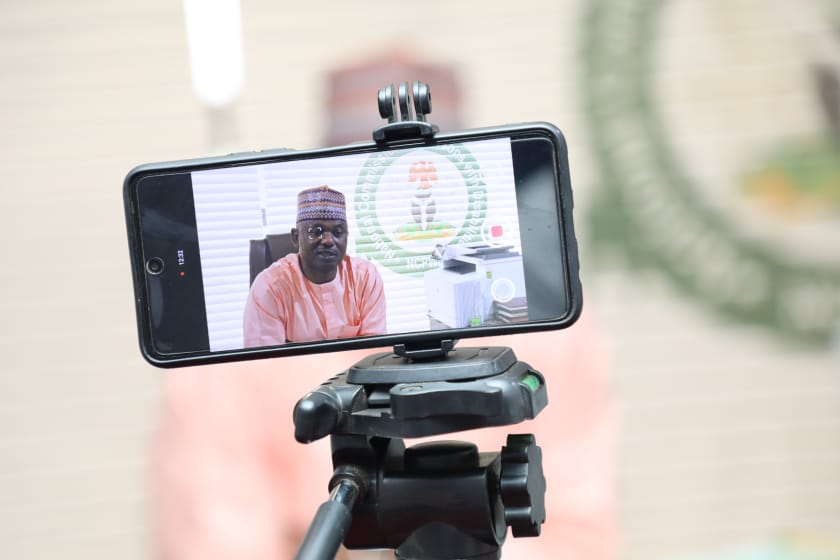
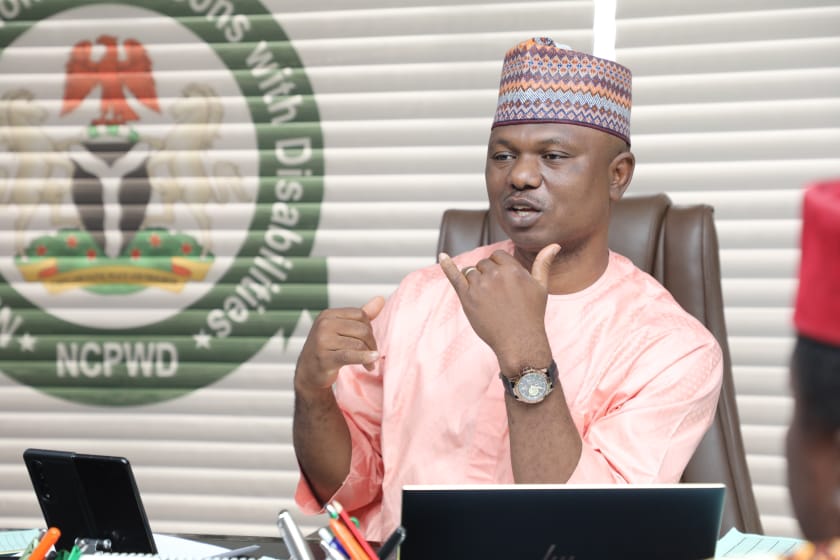
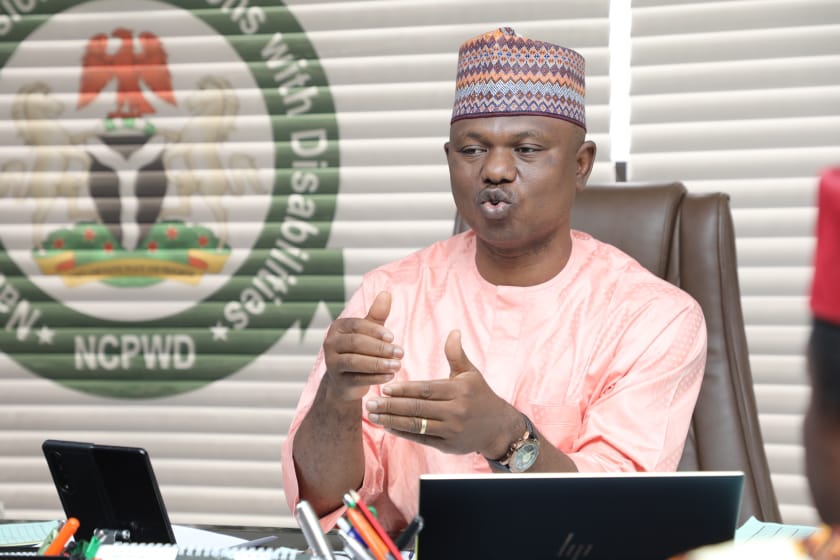
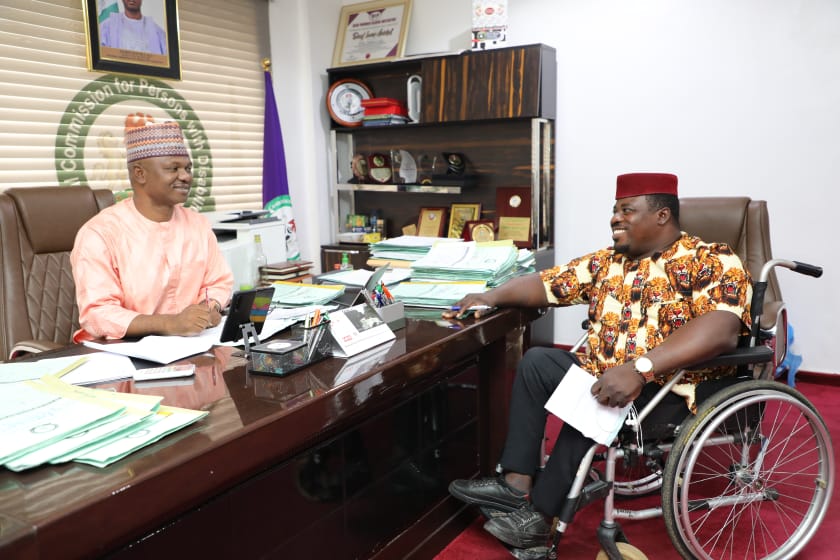
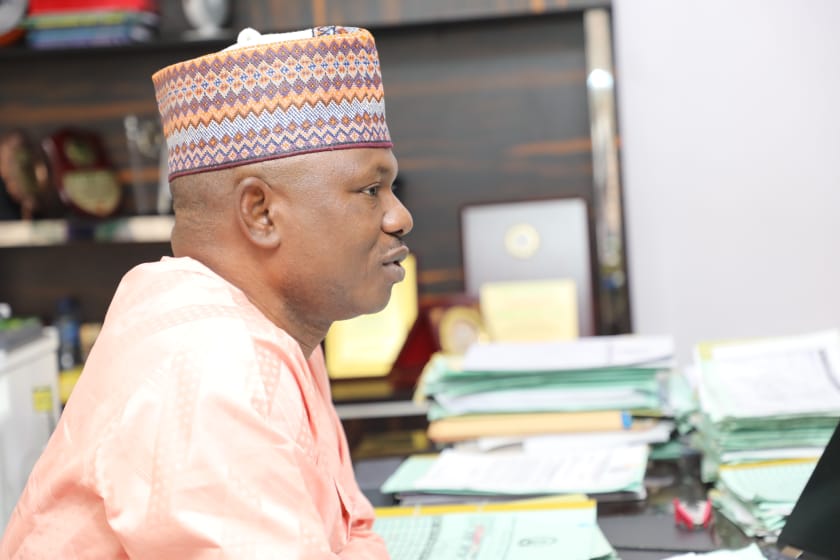
TQM: What are your plans on awareness creation around the Act and the activities of the Commission?
We have concluded partnership with Federal Radio Corporation of Nigeria. Soon, you will begin to see our awareness programs on the radio.
We are meeting with different agencies of government to tap into their projects and programmes for the benefits of our people.
Soon, we will go into partnership with NTA to create awareness on our activities and very importantly, we are going to meet with the National Orientation Agencies (NOA) to use their mechanism and spread to reach out to the 774 local governments in Nigeria.
We have started reaching out to religious institutions, we have visited the Sultan of Sokoto and the Christian Association of Nigeria (CAN) President, and in October, we are going to organize a stakeholders meeting on disability religious inclusiveness. The idea behind it is to get religious leaders to take up the advocacy and take it down to the rural communities using their reach. We have mosques and churches in every community in Nigeria.
We are going to have 2day conference where we will bring religious leaders and leaders in disability community to a roundtable meeting where the necessary awareness will be created so that these religious leaders will understand disability inclusion and take the message down to the rural communities. We will extend this strategy to first class traditional rulers and convince them to be part of the advocacy. We are going to visit them in the different palaces across the country and later bring them to Abuja to interact with PWDs to understand how our different cultures and traditions have contributed to some discriminatory practices.
TQM: Your message to Persons with disabilities (PWDs)?
First of all, we thank God, we are not where we want to be but we are not where we used to be. It is work in progress. Thank God, we have left where we used to be. It is not going to happen overnight because when you talk about disability inclusive development, you are talking about change of attitude. We can’t change people overnight but we will continue to do what we must do in health sector, educational sector, etc. We must make sure we provide the necessary opportunity for PWDs in these areas. We have very intelligent PWDs in Nigeria and we will work to provide opportunities for them. Let me also thank President Muhammadu Buhari for giving us a document (Disability Rights Act) that have turned around the fortune of PWDs in Nigeria and also creating a National Commission for Persons with Disabilities to ensure that the disability rights Act is implemented. He is the first Nigerian President to achieve this feat and we are very grateful to him.
He is also the first President to appoint 3 Special Assistants with disability into the Presidency.
Persons with Disabilities should leverage on this and ensure that it is passed on to the next government.
Persons with Disabilities should come and showcase their electoral value so that we can negotiate for more position come next government.
On the level of the Commission, we will engage the Presidential candidates to ensure there is disability inclusion in the next government.

